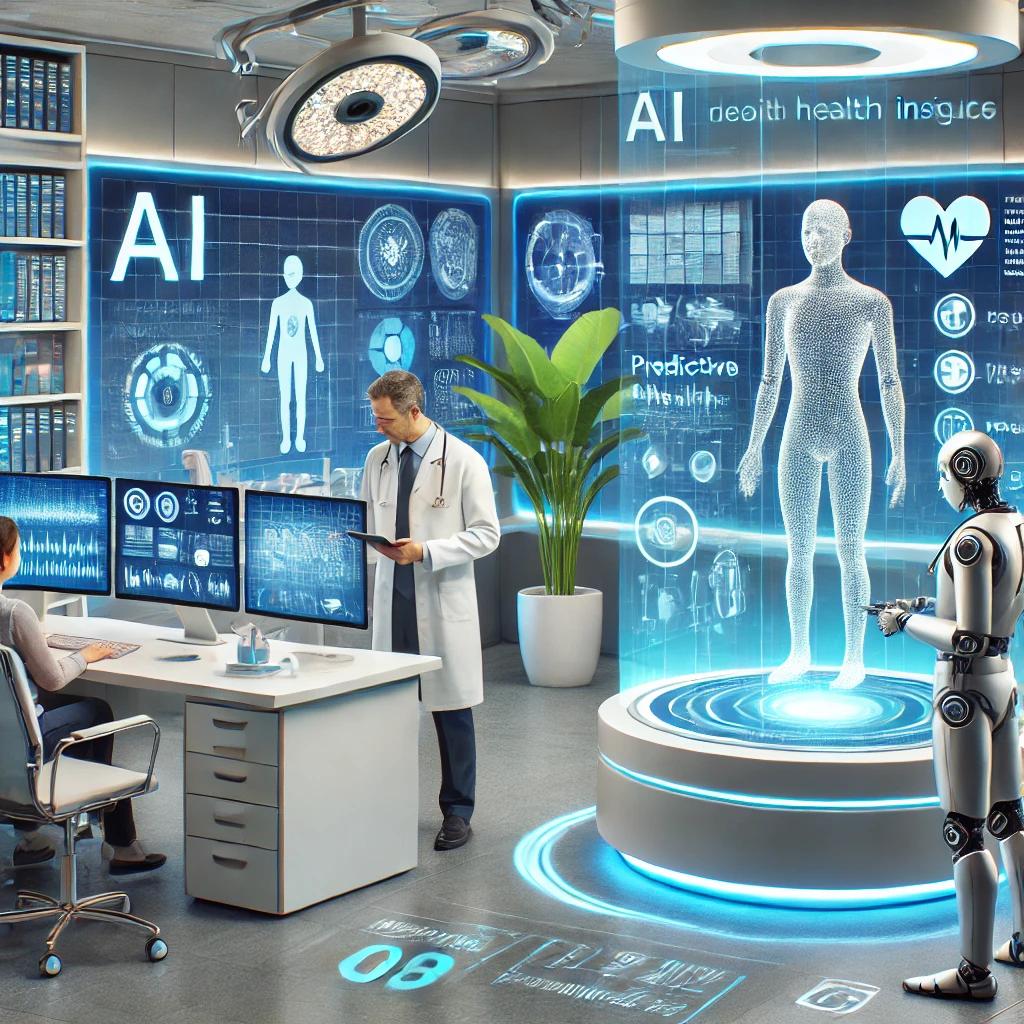
The future of AI in healthcare includes robotic-assisted procedures, predictive analytics for disease prevention, and AI-driven precision medicine. AI will continue evolving, ensuring better healthcare accessibility and efficiency.
Chapter 6: The Future of AI in Medical Offices
6.1 What's Next for AI in Healthcare?
AI is rapidly evolving,
bringing new capabilities in diagnosis, robotic surgery, and patient
monitoring.
✅ Emerging Trends:
AI-driven robotics for
surgery.
Predictive AI models for early disease detection.
✅
Example: AI in Robotic Surgery (Da Vinci System)
The Da Vinci
robotic surgery system, assisted by AI, reduces surgical errors by 40%.
6.2 AI and Human Collaboration
AI should enhance, not replace, human
medical professionals.
✅ Balancing AI and Human Touch:
AI
handles data-heavy tasks, while doctors provide empathy and personal
connection.
AI reduces burnout, allowing physicians to focus on
complex decision-making.
✅ Case Study: AI-Human Collaboration in
Radiology
Stanford's AI-assisted radiology reduced diagnostic
errors by 35% while still requiring human oversight.
6.3 Building a
Smart Office for the Future
✅ Steps to Future-Proof Your Practice
with AI:
Start with small AI integrations (e.g., chatbots,
billing automation).
Invest in AI-powered diagnostics for faster
results.
Train staff to work alongside AI tools.
Regularly update
AI systems to prevent biases and errors.
✅ Example: AI-Enhanced
Clinics of the Future
Smart AI scheduling, automated diagnostics,
and wearable health tracking will become standard in next-gen medical
offices.
Review Questions
1. What is a key advantage of AI-powered
virtual assistants?
A. They replace human doctors
B. They automate
note-taking and clinical decision support
C. They work without human
oversight
D. They diagnose diseases on their own
2. How does
AI improve telemedicine?
A. By diagnosing conditions without doctor
input
B. By pre-analyzing patient symptoms before consultations
C.
By eliminating the need for doctors
D. By replacing in-person visits
entirely
3. What is one key ethical concern with AI in
healthcare?
A. AI completely replaces doctors
B. AI systems must
be transparent in decision-making
C. AI should work without human
oversight
D. AI is error-proof
Answer Key:
B (AI automates
documentation and clinical support)
B (AI pre-analyzes symptoms
before telehealth visits)
B (AI must be transparent in how it makes
decisions)
Final Thoughts
AI is shaping the future of medical
offices, improving efficiency, accuracy, and patient care. The next step
is responsible AI adoption, ensuring that AI tools work alongside
doctors, not replace them.